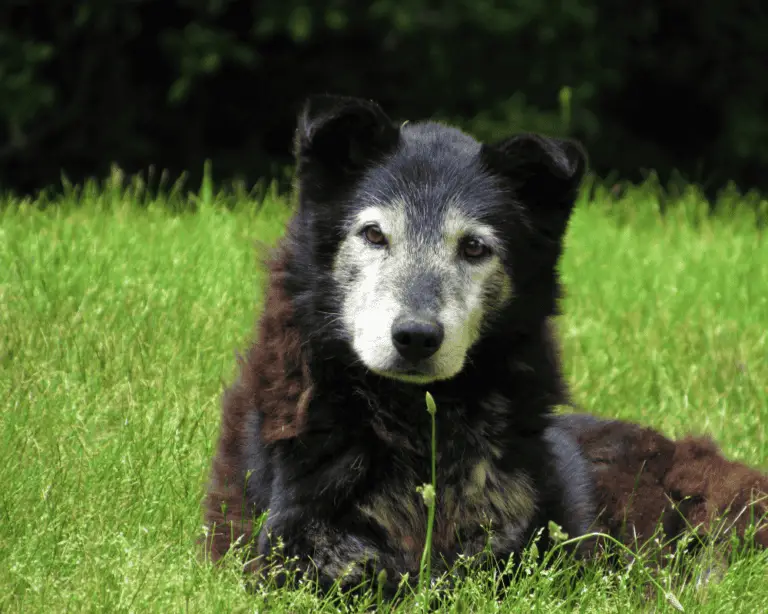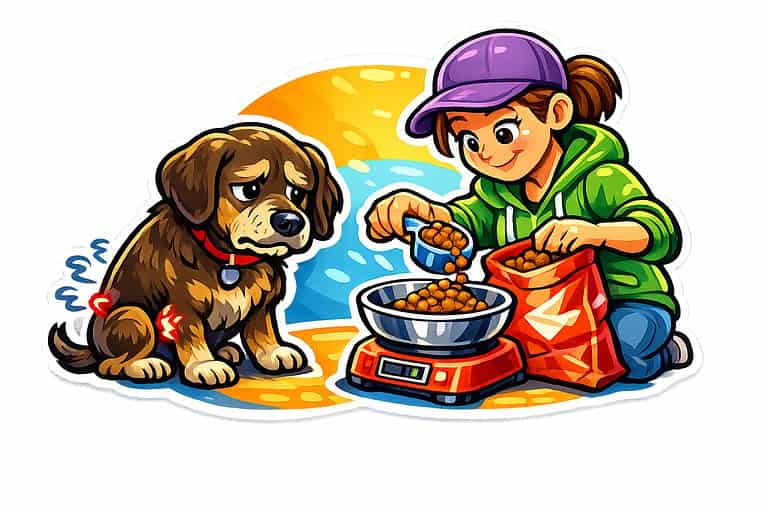Top 10 Health Problems in Senior Dogs You Should Be Prepared For

As your dog gets older, health issues can arise. It’s helpful to recognize these changes so you can help your dog.
With the right knowledge, you can take better care of your senior dog.
By learning about the most common health problems in older dogs, you’ll be well prepared to give your four-legged friend a happy and healthy life in their senior years.
In this article, you’ll learn what to watch for in your aging dog and how you can help if problems arise.
1) Arthritis

Arthritis is a common problem in older dogs. You’ll notice it when your dog gets stiff and moves less.
The joints can become swollen and painful. The hips, knees, and elbows are often affected.
You can help by keeping your dog at a healthy weight. Gentle exercise is good for them.
Ask your veterinarian about pain medications made for dogs.
There are also supplements that can support the joints. An orthopedic bed is especially important for your dog now. With the right care, your dog can still enjoy many wonderful years despite arthritis.
2) Dental disease
Dental problems are very common in older dogs. You should check your dog’s teeth regularly to catch issues early.
Watch for signs like bad breath, tartar buildup, or inflamed gums.
Your dog might also eat less or show pain while chewing.
Periodontitis is a common dental disease in senior dogs. It affects the gums and can lead to tooth loss. Regular tooth brushing can help reduce the risk.
Broken teeth are also more common in seniors. Be careful with very hard chew bones. Softer alternatives are better.
Schedule regular checkups with your veterinarian. They can thoroughly examine your dog’s teeth and clean or treat them if needed.
3) Heart failure

Heart failure is a common problem in older dogs. You often notice it through shortness of breath and reduced stamina.
Your dog may tire more quickly on walks or cough after mild exertion. Also watch for nighttime panting or restlessness.
Swollen legs or abdomen can be additional signs. Your veterinarian can diagnose it with tests like X-rays or ultrasound.
The good news: There are medications that can help your dog. A tailored diet and gentle exercise are important too.
Regular checkups with your veterinarian are a must if your dog has heart failure. That way you can maintain your loyal friend’s quality of life for a long time.
4) Cancer

Cancer is a common disease in older dogs. You should stay vigilant and check your dog regularly.
Watch for swellings, weight loss, or loss of appetite. Fatigue can also be a sign. If you notice anything unusual, see your veterinarian.
Early detection greatly improves the chances of successful treatment for your dog. Many types of cancer can be treated well today.
Regular preventive checkups are important. Your veterinarian can often spot changes early. Be sure to keep those appointments.
A healthy diet and enough exercise can lower the risk of cancer. Talk to your veterinarian about the best prevention for your dog.
5) Kidney problems
Kidney problems are unfortunately common in older dogs. Watch for increased thirst and frequent urination. Those can be early signs.
Loss of appetite and tiredness can also point to kidney issues. If you notice these symptoms, it’s best to visit your veterinarian right away.
Kidney disease can seriously affect your dog’s health, so it’s important to catch and treat it early.
Your veterinarian can use blood and urine tests to see how well your dog’s kidneys are working. If there are problems, there are special diets and medications that can help.
You can also help your dog with the right diet. Ask your veterinarian about an appropriate food for dogs with kidney problems.
6) Diabetes mellitus

Diabetes mellitus is a common metabolic disorder in older dogs. Your dog may not produce enough insulin or may not use it properly.
Watch for signs such as increased drinking and urination. Weight loss despite a good appetite can also occur.
If you notice these symptoms, take your dog to the veterinarian. An early diagnosis is important for treatment. Therapy usually includes insulin injections and a tailored diet. You’ll need to check your dog’s blood sugar regularly.
With the right care, your dog can live well with diabetes. Stay patient and learn how you can help them best.
7) Cataract

Cataract, also known as clouding of the lens, is a common eye disease in older dogs. You’ll recognize it by a grayish haze in your dog’s lens.
If your dog has a cataract, their vision may be impaired. In some cases, the condition can even lead to blindness.
Watch for signs like uncertainty when walking or difficulty catching toys. Surgery can often help improve your dog’s vision.
Talk to your veterinarian about the best treatment options. With the right care and attention, your dog can live a happy life even with a cataract.
8) Hearing loss

Hearing loss is a common issue in older dogs. You may notice that your dog doesn’t respond to calls as well.
That can be frustrating for both of you. There are various reasons for hearing loss in senior dogs. Often it is simply a result of aging.
Sometimes infections or injuries are to blame. You can help your dog by speaking more clearly and using hand signals.
Learn how to communicate effectively with a deaf dog. That way you stay connected.
Keep your dog safe. A hard-of-hearing dog may not hear dangers like cars well anymore. Keep them on a leash when you’re outside.
9) Dementia

Dementia in dogs is a serious issue that often affects older pets. You may notice different signs that point to this condition.
Your dog may seem confused or disoriented. They may have trouble recognizing familiar places or finding their way home.
Behavior changes are also typical. Your dog might respond differently to you or other family members than before.
Your dog’s sleep-wake cycle may change. They might sleep more during the day and be restless at night.
House training can become an issue. Your older dog may forget where to go potty.
Good care and regular veterinary checkups can help improve the quality of life for a dog with dementia.
10) Incontinence
Incontinence is a common problem in older dogs. You may notice that your dog has more accidents in the house or leaks urine.
Incontinence in dogs can have different causes. Sometimes it’s due to weak bladder muscles or hormones.
Conditions like diabetes or kidney problems can also be responsible. You can help your dog by taking them outside more often.
Special dog diapers or pads can be useful. Keep their sleeping area clean and dry.
There are medications that can help. A tailored diet can also support them. Be patient with your loyal friend. Incontinence is uncomfortable for them too.
With the right care and love, you can get through this challenge together.
Care and prevention
With the right care and preventive measures, you can significantly improve your older dog’s quality of life. Good nutrition and regular health checks are especially important.
Nutrition tips for senior dogs
Your older dog needs a diet tailored to their needs.
Choose food with fewer calories but more fiber. That helps with digestive issues and weight management.
Look for easily digestible proteins and omega-3 fatty acids for healthy joints. Give your dog several small meals a day. That is easier on their digestion.
Fresh water should always be available. Special senior diets can be a good choice. Ask your veterinarian about the best nutrition for your dog.
Common health checks and why they matter
Regular veterinary visits are very important for older dogs. Have your dog examined at least twice a year.
The veterinarian checks the teeth, eyes, and ears and palpates the body. Blood tests can detect diseases early.
At home, watch for changes in your dog’s behavior or appearance. Be especially alert to weight loss, loss of appetite, or increased thirst.
Report any concerns to your veterinarian right away. That way you can treat many problems early.






